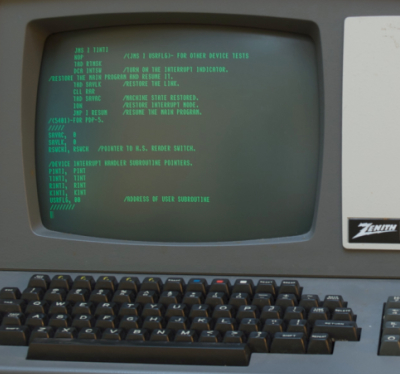25 Years on the Internet
on
 I was a relatively early adopter of the Internet, having gotten a Bitnet account at the University of Calgary through the Shad Valley program. Of course I'd been involved in BBS's & Fidonet before this, but that branch of computer networking died when the Internet started to take off.
I was a relatively early adopter of the Internet, having gotten a Bitnet account at the University of Calgary through the Shad Valley program. Of course I'd been involved in BBS's & Fidonet before this, but that branch of computer networking died when the Internet started to take off.
It was exciting to see the range of conversations on Usenet newsgroups, mailing lists and of course through email. I became very involved in exploring what could be done with this technology and in 1990 began approaching non-profits, encouraging them to invest in this technology to help them accompish their mission. At that time, most non-profits were over worked and under resourced and really didn't see how it would help them solve the challenges that they faced right then.
Over the last 25 years newsgroups have largely become overrun with flame wars, pirated videos and have been replaced by more controlled communities like Google Groups. Mailinglists are still used, but more of them are also being folded into commercial services largely because it was just too difficult for people to maintain.
Email's Still Basically the Same
Email, however, really hasn't changed all that much in the last 1/4 century. Sure, there are nicer interfaces than elm/pine provided back in the day. The spellcheck functionality & HTML formatting has gotten way easier, but the central concept remains largely unchanged.
Google's WAVE did try to shake up email to be more interactive, but they closed it down. It's now an open source Apache Incubator project, so perhaps it will come back. I recently learned about Assembl - an open source project to use technology to build collective intelligence. All trying to leverage our need to more effectively communicate complex ideas electronically. Some organizations have even adopted Wiki's as an official way to reduce the flood of emails they get every day.
Short Term Convenience
One of the big advantage of email is convenience. I can compose an idea, or write a request and send it off. The sender is confident that you will get it and process it when time allows. Unfortunately, short-term convenience often becomes a long-term annoyance. Many of us are returning now from a summer vacation to a flood of email. The anxiety this produces has caused some companies to simply delete emails sent while people are on vacation.
Despite it's previlance, so often emails are written badly.
- Emails often contain many points that are missed in replies
- Long threads become difficult to follow as some content isn't deleted
- People are cc'd without needing to be cc'd wasting time
- People still reply-all with information that should only be sent to the sender
There are so many resources on writing better emails from Inc.com, themuse.com, mindtools.com, & lifehacker.com. We can do better if we just take this seriously.
We are wasting a lot of our time in society doing even basic things like organizing meeting times/places. Tools like Google's Calendar & Doodle help, but most people don't use them. Much of it comes down to the good habbit of suggesting a few times that work for the sender.
Thinking Ahead
It's interesting though talking to my 13 year old daughter about the future of technology. She thinks that email's for old folks. She has an email address, but most of her communications is done through SMS and Facebook at the moment. Who knows how she will try to organize with her friends in 25 years, but hopefully as a society we'll have learned how to communicate more effectively with each other through the Internet.
The world will look so different in 25 years, but hopefully if we support good collaborative processes in the future, that are children won't be struggling with the same challenges we are.
Photo credit: @ajmexico
Share this article
About The Author
Mike Gifford is the founder of OpenConcept Consulting Inc, which he started in 1999. Since then, he has been particularly active in developing and extending open source content management systems to allow people to get closer to their content. Before starting OpenConcept, Mike had worked for a number of national NGOs including Oxfam Canada and Friends of the Earth.




Add new comment